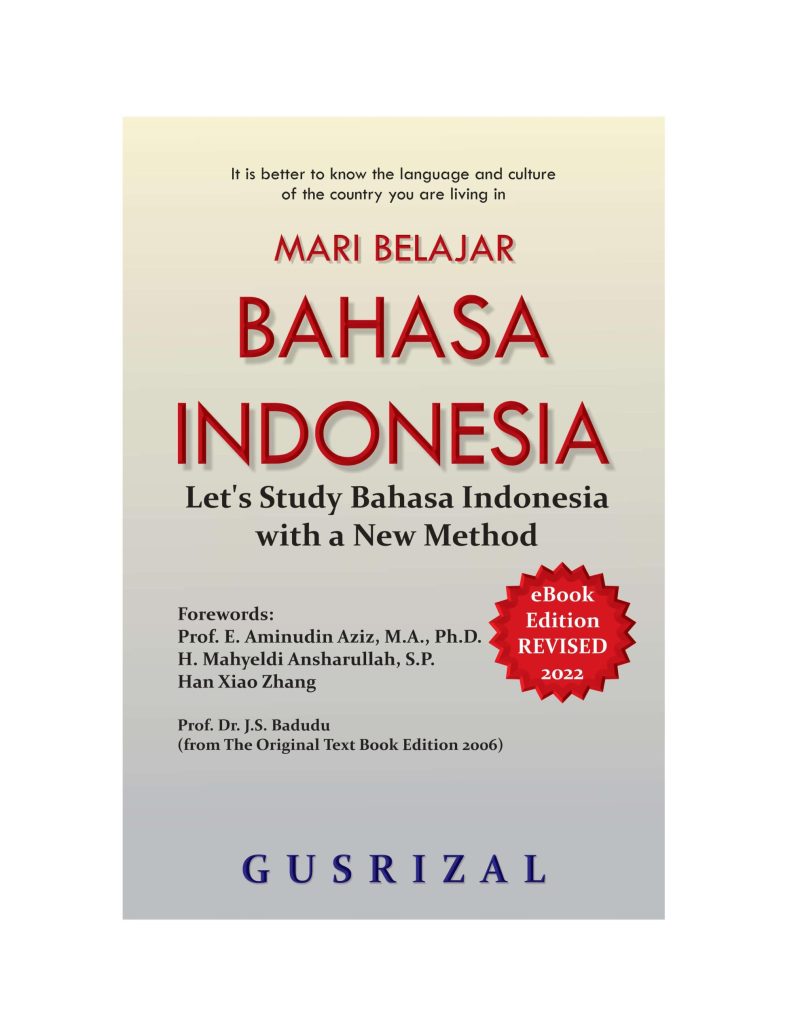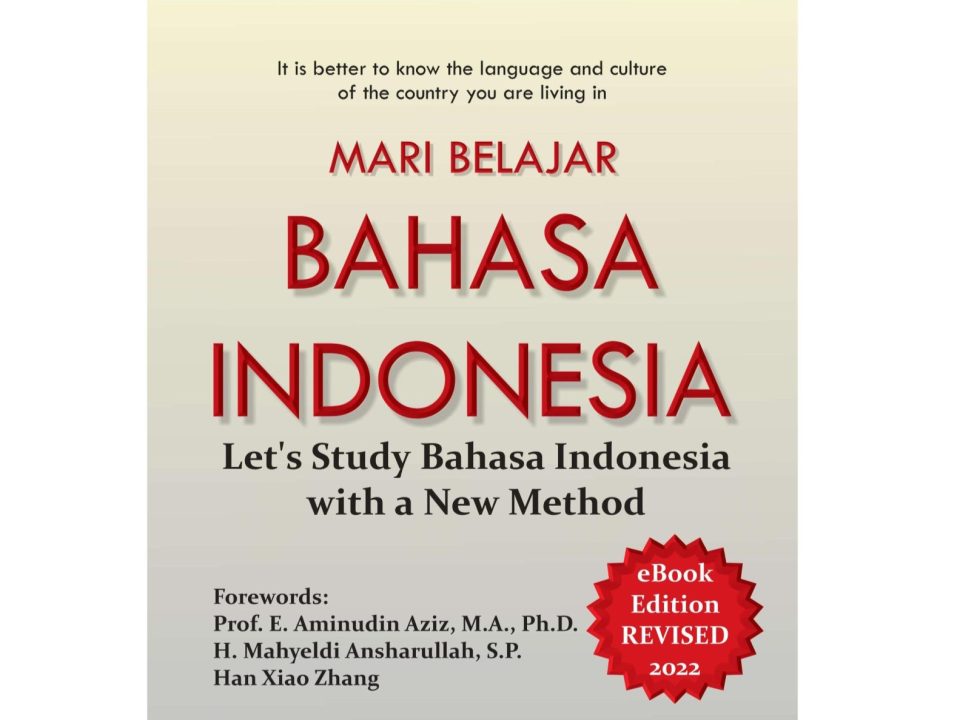Bahasa Indonesia has a great opportunity to be one of the world’s main languages following Indonesia’s large population and abundant natural resources, exerting significant influence on ASEAN and Asia Pacific countries.
On a global scale, it is currently ranked eleventh compared to English at the first place, followed by Chinese, Hindi, Spanish and Arabic.
Foreigners aspiring to study Bahasa Indonesia usually enrol on Indonesian for Foreign Language Speakers (BIPA) courses across the country. There are 136 BIPA programs in 36 countries, including Australia. One of the noted BIPA teachers is Gusrizal, an English teacher and lecturer from Bukittinggi, West Sumatra. He is an avid advocate for teaching Indonesian language studies at Australian high schools and universities for years since 2002. Thanks to him, cultural diplomacy and educational cooperation between the West Sumatra city of Bukittinggi and various cities in Australia are splendid. Bukittinggi and Australia’s cooperation is progressing at the community level.
With an interest in building Indonesia-Australia relations, he initiated a teachers’ exchange between Australia and West Sumatra in 2007. In September 2018, in collaboration with Balai Bahasa dan Budaya Indonesia Victoria Tasmania, he designed an immersion program visit to Bukittinggi and Padang Panjang of West Sumatra.
Cushioned by his teaching experience in Australian schools, Gusrizal compiled his teaching materials and turn them into a book, “Let’s Study Bahasa Indonesia with a New Method”. This is a new edition in an electronic version published this year, 2022. This book may serve as teaching material for any teachers or mentors. It suits BIPA teachers as it is not a purely academic approach. Rather it incorporates practical matters such as conversation. This renders the book more applied and hands-on when it comes to learning.
When launching the book a few days ago, there is a strong expectation that the book will contribute to teaching Bahasa Indonesia abroad, particularly in Australia. Fewer than 1,000 senior high school students in Australia are learning Indonesian now. Far more were interested in 1972. The decline has been blamed on the 1998 Asian economic crisis, the Bali bombings of 2002 and 2005 and subsequent travel warnings that curbed educational exchanges. Japanese is now the most popular language taught in Australia.
Universities in Japan, Australia, Ukraine, South Korea, Vietnam, Morocco, the United States, Canada, and Suriname are reportedly offering students Indonesian language courses. The enthusiasm for learning the language overseas emanates from people’s interest in knowing more about the social, cultural, ecological, economic, and political systems of Indonesia. This fact, however, stands in direct contrast to the situation in the country, where the passion for learning Indonesian is at its lowest, and the zeal for learning foreign languages, including English, is peaking.
The key to teaching Bahasa Indonesia lies in creativity and innovation. Amid the COVID-19 outbreak in 2020-2021, online lectures have facilitated students of Indonesian language and culture in various universities in the country. The online lectures have facilitated foreign students of Indonesian language and culture in various universities in the country. Students attended classes by watching the lectures and reading course material in the form of e-books. They are also allowed to submit assignments through email. The online classes have run until the government ended up lifting the travel ban.
There is a significant increase in the number of speakers of other languages learning the Indonesian language. Other than Australia, which is always recorded as the country with the highest number of learners learning Indonesian, such countries as Japan, China, the USA, Turkey, Egypt, Saudi Arabia, Germany, Thailand, Uzbekistan, and some other Asian and European countries have shown strong interests.
For the past few years, the BIPA agency has sent teachers of Bahasa Indonesia to these countries to help the learners improve their Indonesian language competencies. The results of this programme are amazing. The Indonesian language learners have shown fantastic progress where in a few weeks of learning they have been able to communicate in Indonesian. More importantly, their interests have become even stronger. We can hope that in the future they can become good friends of Indonesia who will help disseminate and promote Indonesia in their respective countries.
The availability of teachers and suitable or relevant learning materials, however, is always a problem. Contextualization of learning materials within the learners’ situations is not always evident in the learning materials that are available now. Access to learning materials is another problem. Therefore, the transformation of printed learning materials into electronic versions, like this book, is an attempt that deserves appreciation. Apart from having the advantage of its fast and vast transmission, an electronic version of the book written by Gusrizal can also be accessed more easily.
Mari Belajar Bahasa Indonesia: Let’s Study Bahasa Indonesia with a New Method
Gusrizal – Andalas University Press – 211 pages – 2022

By Donny Syofyan – The writer is a lecturer at the Faculty of Humanities, Andalas University.




